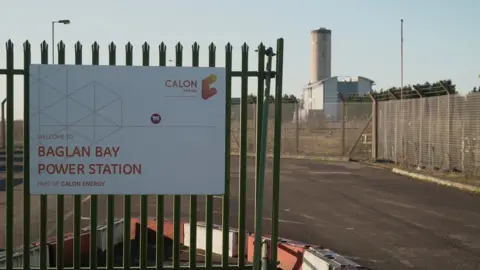Baglan Energy Park: Welsh government can appeal power cut ruling
 BBC
BBCA court ruling which would see electricity cut for several businesses can be appealed, a judge has ruled.
Last week an attempt to stop the supply being cut failed, meaning firms at the Baglan Energy Park, in Neath Port Talbot, face weeks without power.
The electricity will now stay on until the Welsh government appeal, at a date to be decided, is dealt with.
Judge Sir Alistair Norris said it would be "highly desirable" for the appeal to be heard on an "expedited basis".
The parent company of Baglan Bay Power Station, which supplied power to the site, went into administration in June 2020 and stopped generating electricity.
Power has continued to be supplied to its customers, including other businesses at Baglan Energy Park, through "private wire network" via a substation at the site.
The official receiver, whose job it is to wind down the parent company, has said that supply was always meant to be temporary, to enable the company to be liquidated, and to give other companies times to find alternative supply.
About 1,600 people are employed at the park.
 Alan Hughes/Geograph
Alan Hughes/GeographThe official receiver initially planned to cut the supply on 14 January, prompting a legal challenge from the Welsh government.
Ministers said an alternative supply of energy will be established for most customers by the end of May, and the existing supply should not be cut until then.
That argument was rejected by the High Court last week but will now be looked at again by the Court of Appeal.
For the Welsh government, Ian Rogers QC argued on Monday that human rights were at stake because cutting power supply to the site could cause a flood risk with potentially "catastrophic consequences" as pumps would have to rely on diesel generators.
Jessica Simor QC, counsel for the official receiver, said the judge was confined to the powers within the insolvency act, and could not act to "generally protect human rights".
But granting permission for the appeal, the judge said he intended to take a "pragmatic view" and it "would be wise" for the court of appeal to consider the applicability of the Human Rights Act.
